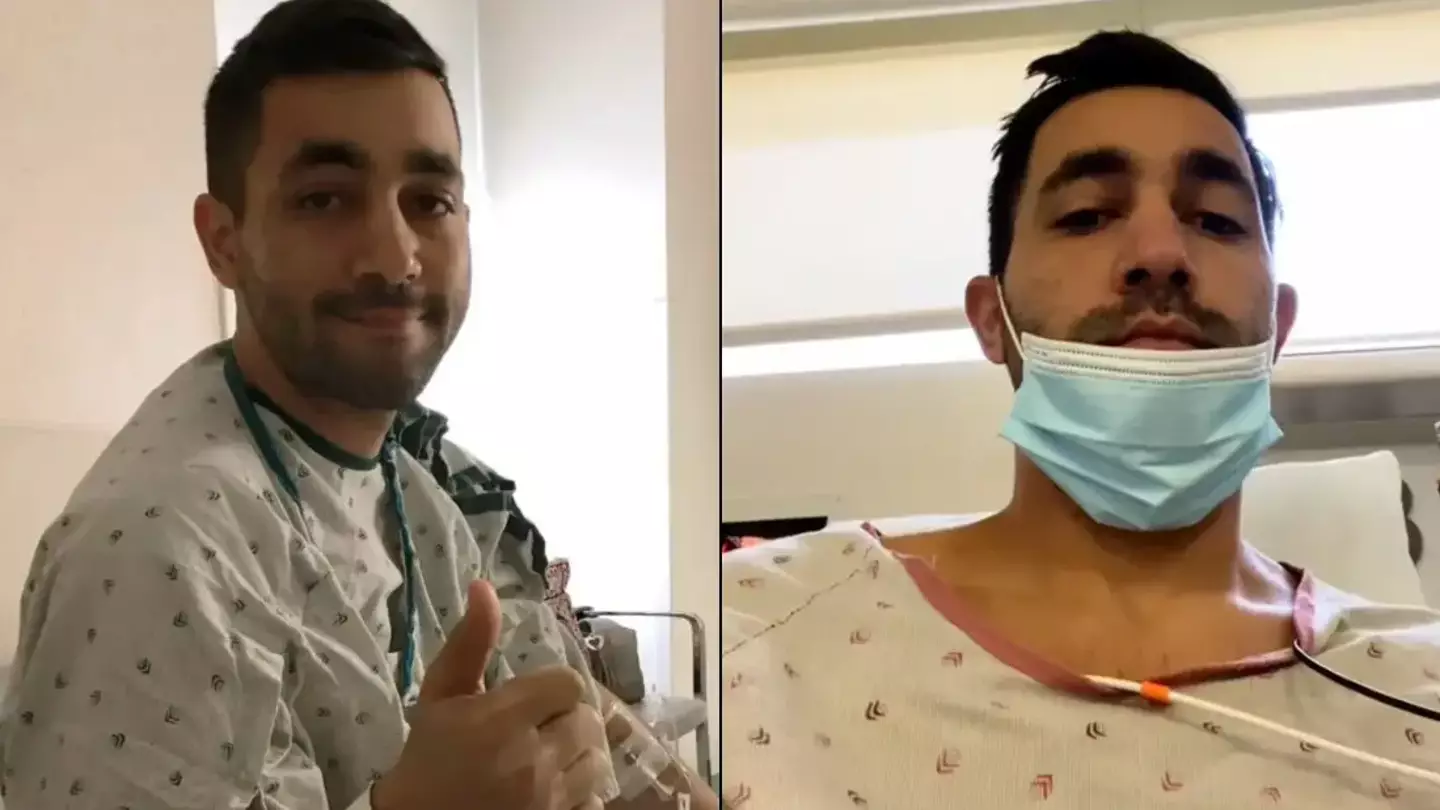Joe Faratzis explained the things that had signalled that he was battling a serious illness
A man who was diagnosed with state 4 colorectal cancer has spoken out about the red flags he noticed before he was told about his condition.
Admitting that he had ‘put these symptoms off for months,’ Joe Faratzis explained the things that had signalled that he was battling with a serious illness.
Taking to TikTok, he shared that he had waved away the signs before finally deciding to get a colonoscopy to find out what was going on.
Now, he’s urging others to not ‘risk your life by waiting to see a doc’ and that ‘early screening could save you and your family’.
Having been diagnosed at 28 five years ago, he shared that he began experiencing his symptoms in 2019.
The TMZ producer admitted that he waved away his doctor’s concerns and a CT scan, as he believed that the symptoms were no big deal at the time.
He thought he was ‘invincible’, as per Self Magazine. That was until he couldn’t ignore the signs anymore, and decided to share them to spread awareness to others who might also be dismissing worrying symptoms.
Watch on TikTok
Sweating and night sweats
‘Night sweats, weight loss, pain, chronic anaemia, fatigue, shortness of breath, and loss of energy’ are all symptoms of advanced colorectal cancer, according to Cathy Eng, MD, Professor of Medicine at Vanderbilt University Medical Center, who spoke to Patient Power.
This means that the cancer has either spread or is at a stage where it is harder to tackle.
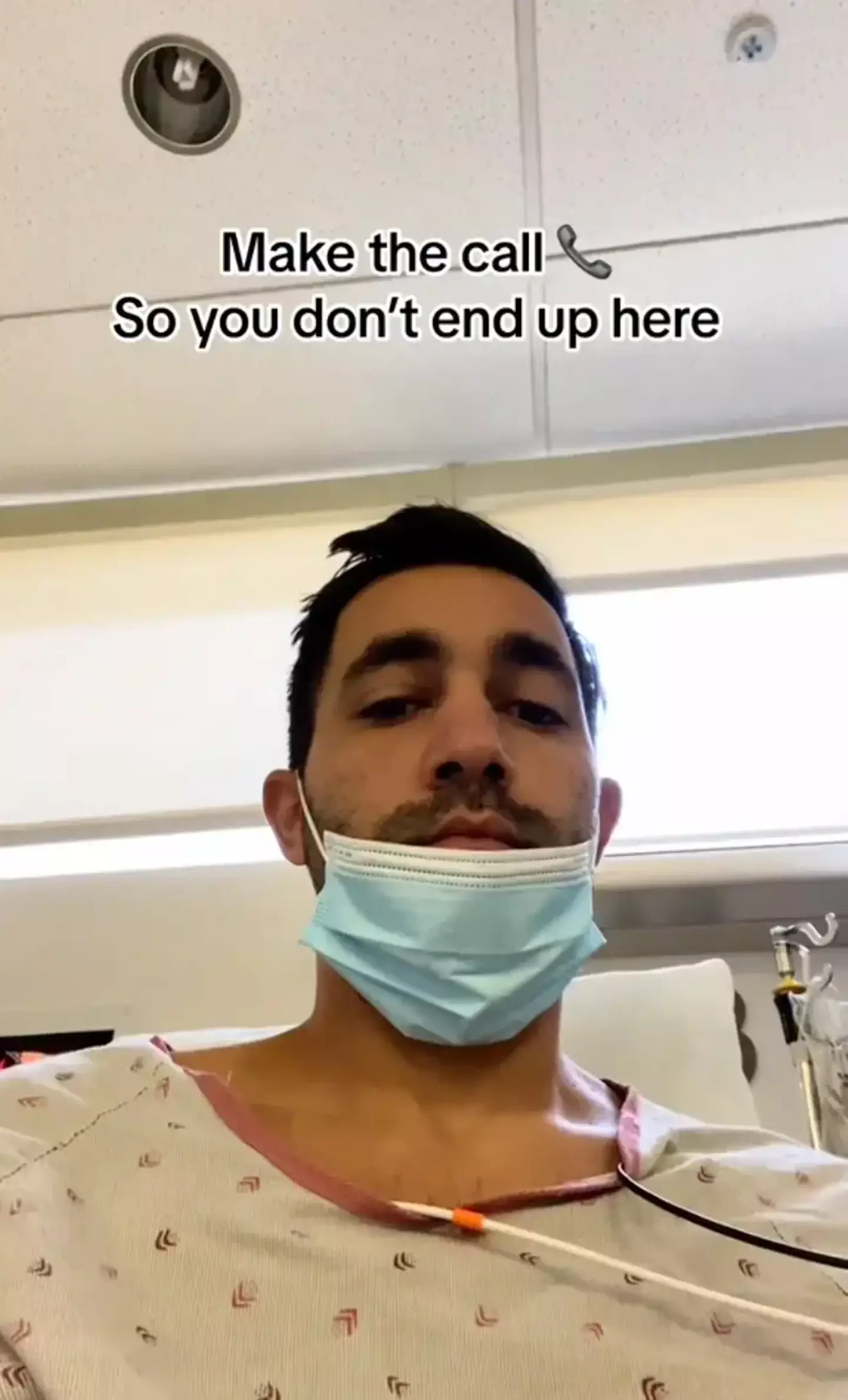
Lower right abdominal pain
According to Healthline, the area where you feel pain can determine where on your colon you have cancer.
For example, the lower right section is the ascending colon, which is ‘the first part of your colon that attaches to your small intestine. It moves stool upward’.
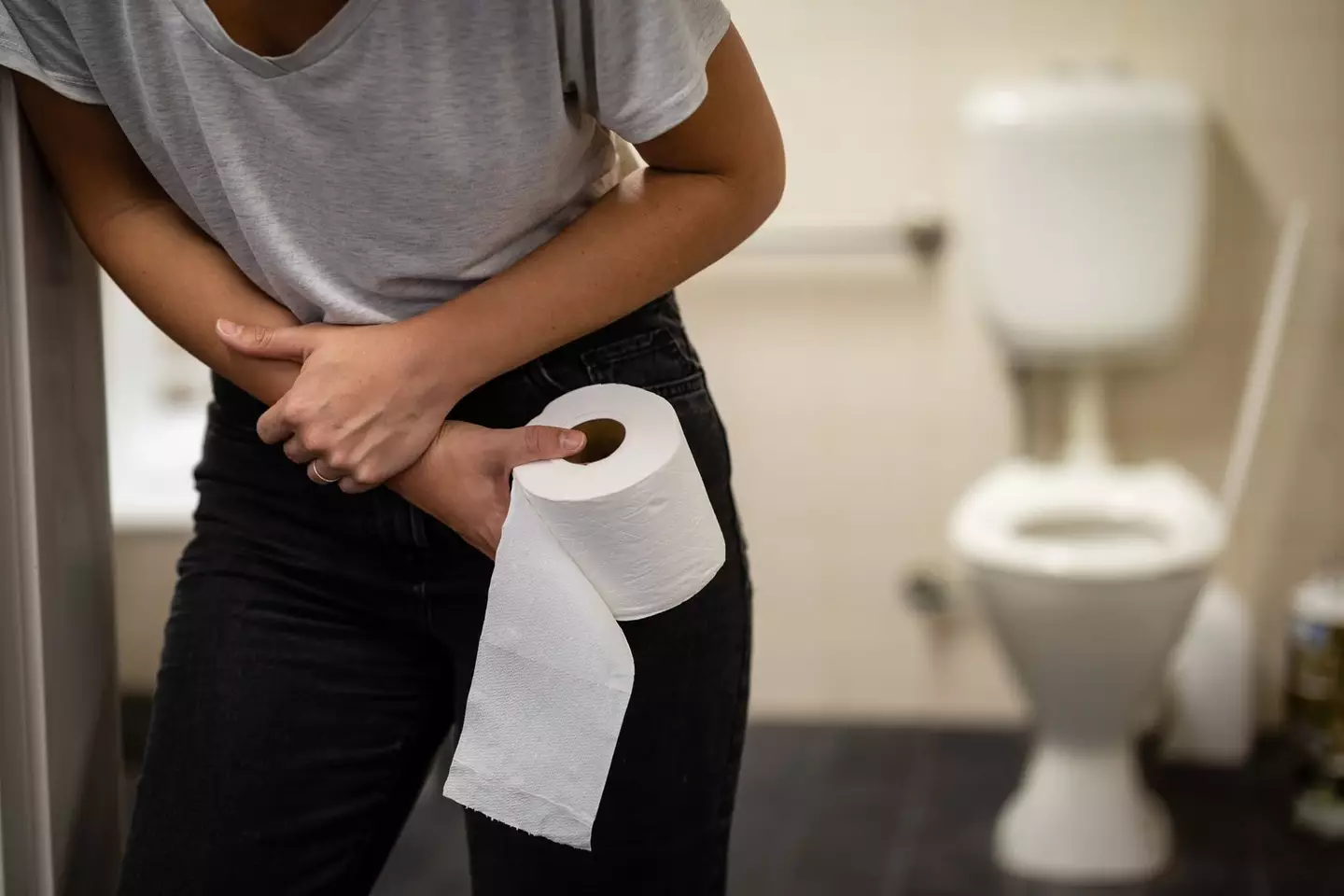
Frequent trips to the bathroom
“[One thing] that I should have paid more attention to is just noticing that I was going to the bathroom way more often than I should have, probably like a couple times a day,” he said.

Abdominal cramps when bending over
He shared that he was experiencing pain whenever he was bent over, but blew off his CT scan and thought it was nothing serious.
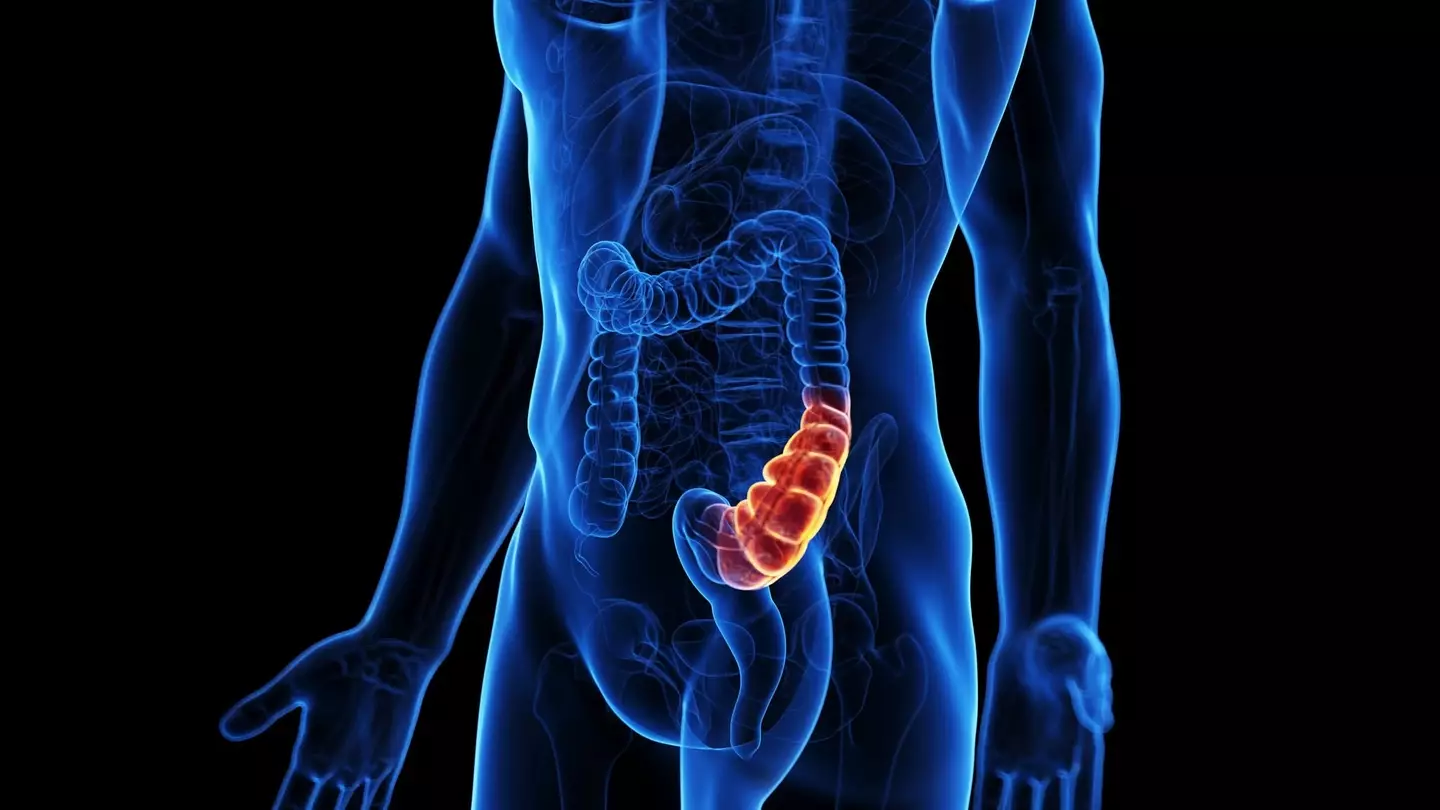
Constipation and cramps
While the NHS states that colorectal cancer can make changes to your poo, MC Anderson Cancer Center states that both diarrhoea and constipation are clear signs of the cancer type.
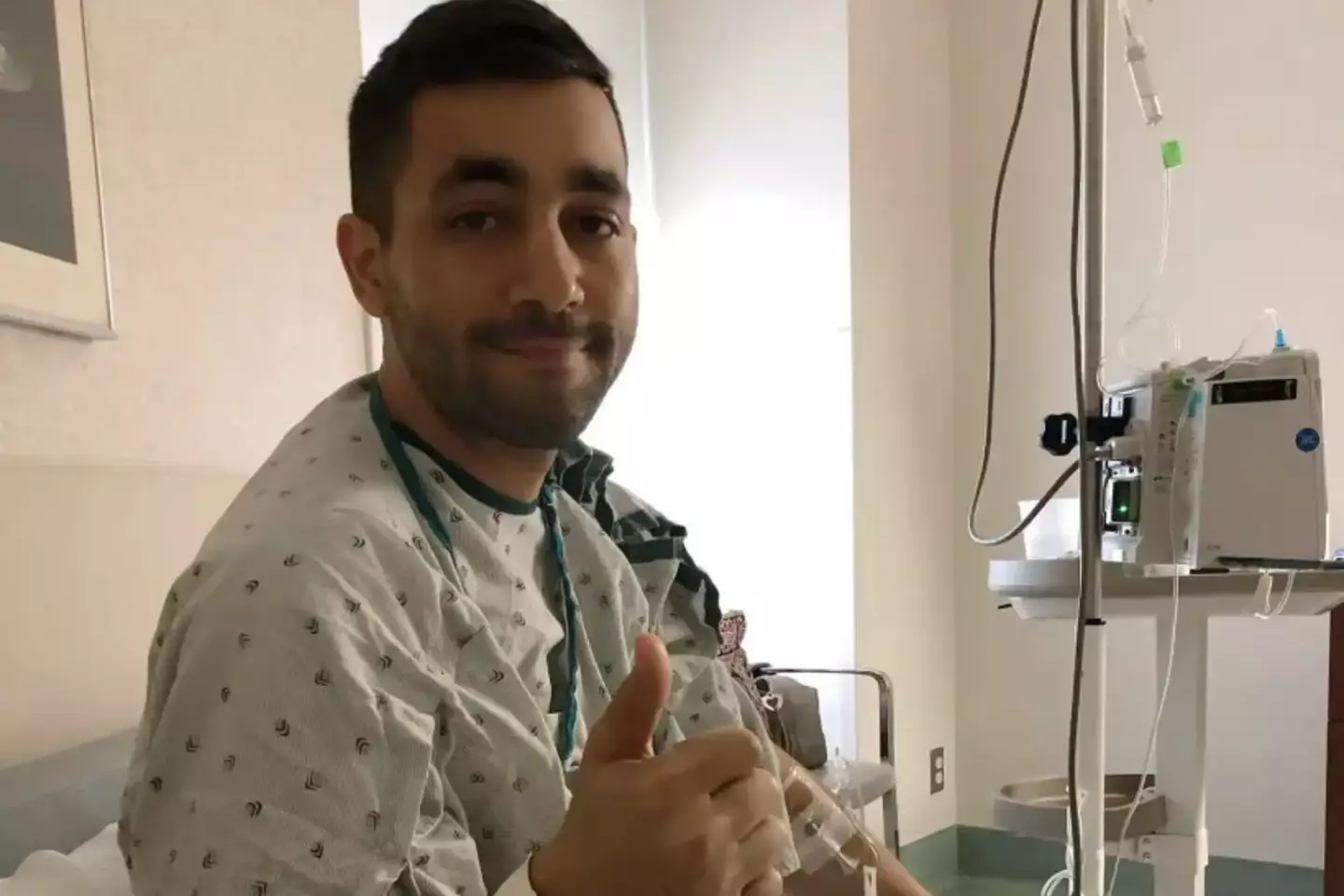
Blood in stool
Six months later, he noticed blood on his toilet paper and he dismissed it as he assumed it was caused by haemorrhoids (piles).
However, the big indicator that something wasn’t right was about to come.
The 34-year-old shared: “The big catalyst that motivated me to take my symptoms seriously occurred a few months later. I was sitting on the couch and I passed gas, looked down, and saw blood.
“I went to the bathroom and there was about a half a cup of blood in the toilet. It wasn’t painful, but I was like, ‘Holy f–k — obviously there’s some issue here.’”
During his testing, Faratzis shared that he had oral and intravenous chemotherapy and also had to have surgery to remove sections of his colon containing cancer as well as procedures to burn and freeze lesions that had developed on his lungs and his liver.
Thankfully, after his treatments were in place, he began to see improvements to his health and in 2023, he received his first clear CT scans.
In April of this year he then celebrated a full year of clear scans, which means that he gets to ‘kind of forget about this for another three months’ when he next scan takes place.
However, he shared that he could have prevented himself from being in such a dire situation, noting to Self: “If I got the CT scan back in 2019 when I had my earliest colorectal cancer symptoms — I might not have wound up in the position I’m in now.”
Since going through his battle, he has become an advocate of early detection, telling viewers: “Turns out, having a functioning rectum is actually really important for your quality of life.”
